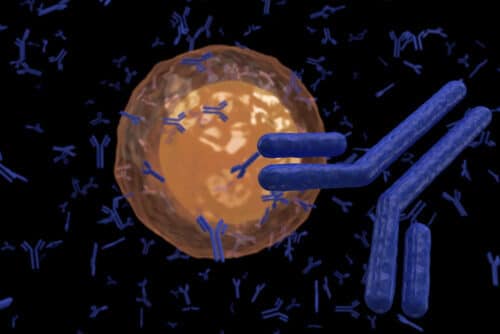This is according to a joint study by Tel Aviv University and Hasharon Hospital (Rabin Medical Center). The researchers estimate that in the case of repeated exposure to Corona, those who recover from the disease may be protected from a second illness - but it is possible that they may still carry the virus and infect others

Researchers from Tel Aviv University sampled the blood of 60 people recovering from corona at the Sharon Hospital, and found that the immune memory cells against the disease are stable over time - while the antibodies to the virus fade in the blood within a few months. This finding raises among the researchers the possibility that in the case of repeated infection by the virus, the morbidity may not be significant. The study was conducted by Dr. Yariv Wein from the Shemunis School of Biomedical Research and Cancer Research at Tel Aviv University, led by post-doctoral fellow Anna Weissman-Mentsch and in collaboration with Dr. Dror Dicker, director of Internal Medicine Department XNUMX at Hasharon Hospital and the department's staff .
Since the SARS-CoV-2 virus is new, there are no data yet on the immune memory of the convalescents over time. In this study, Dr. Wein and his team tested both the level of antibodies and the level of B white blood cells among the study group. As previous studies have already shown, the antibodies against the viral protein of the virus, which is responsible for binding to the target cells in the host's body, develop very quickly - but also fade from the bloodstream after recovery. On the other hand, in the B cells, which remember the proteins of the virus and know how to effectively undergo reactivation in the event of a second infection, no decline was recorded in those who recovered - for six months.
"Coronavirus is a serious disease and has long-term side effects," explains Dr. Wayne. "That's why rehabilitation centers were established for Corona patients, such as at the Sharon Hospital, and this allows us to continue receiving blood samples from patients even many months after their recovery. From the group of convalescents who volunteered for the study, we collected blood at time points three months after the onset of the disease, and three months later, once more. From the data collected, we can say that for at least half a year, the healers had constant levels of type B memory cells that are specific to the viral protein. This means that if the same convalescents are infected a second time, the immune system can respond quickly: the B cells will cause a secondary reaction and thus morbidity may be avoided. On the other hand, due to the decline of the antibodies, the convalescents may still carry the virus - and possibly also infect others."

Since the levels of antibodies in the blood of corona recoveries fade over time, and in some cases it was found that they faded below the detection threshold just three months after recovery, Dr. Wein and his team fear that the serological surveys may not faithfully represent the full picture regarding the spread of the virus among the population.
"The health organizations and the media often talk about serological surveys, which check the level of antibodies in the blood, as a way to check the degree of spread of the virus in the population," says Dr. Wein. "These surveys are very important, but in light of the findings on the decline of antibodies in those recovering from radiation, we may receive a negative answer in the serological test in subjects who have been sick in the past. If the serological memory is not preserved for a long time, and if those who recover can still carry the virus and infect others, it will be challenging to eliminate the morbidity through serological surveys."
Dr. Dicker adds that we are in an ongoing study of the clinical morbidity of the corona virus, which in some recoveries continues even after recovery. This preliminary finding is another layer in the understanding of the chronic morbidity of the corona virus and may shed light on the future immune capacity of these convalescents.
More of the topic in Hayadan:

One response
Immune memory and second infectivity are one thing, and the mass of active antibodies is another.
Evolutionarily, biological systems always strive to minimize survival costs as much as possible, so immune memory exists long-term at minimal cost, while active antibodies are a serious burden of ongoing costs, and are short-term.
What amazes me is that we had to wait for Corona to "discover" this